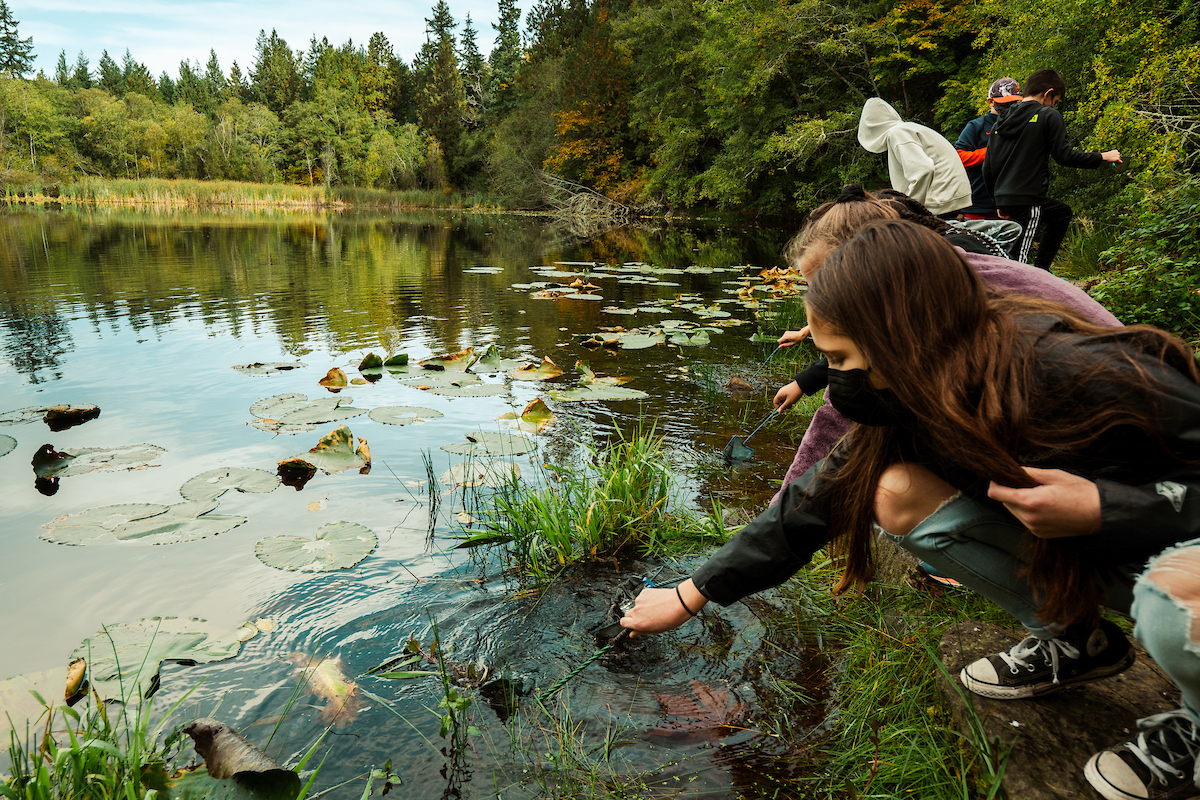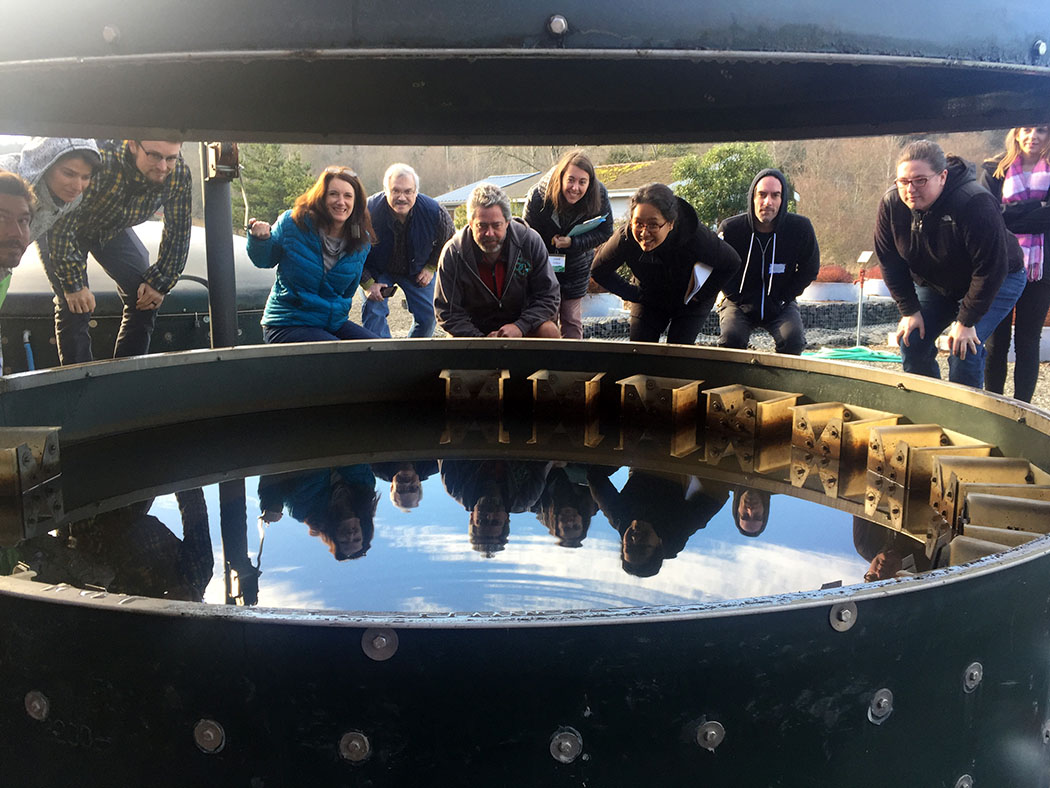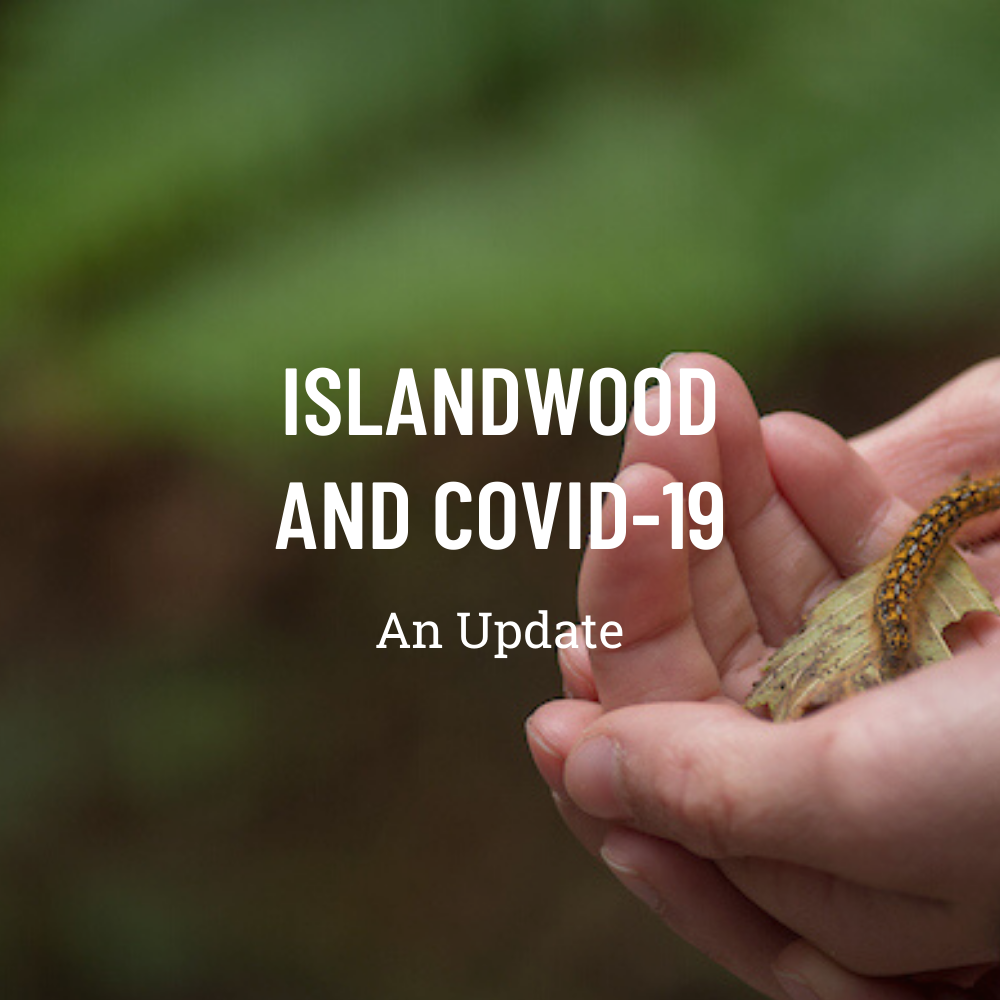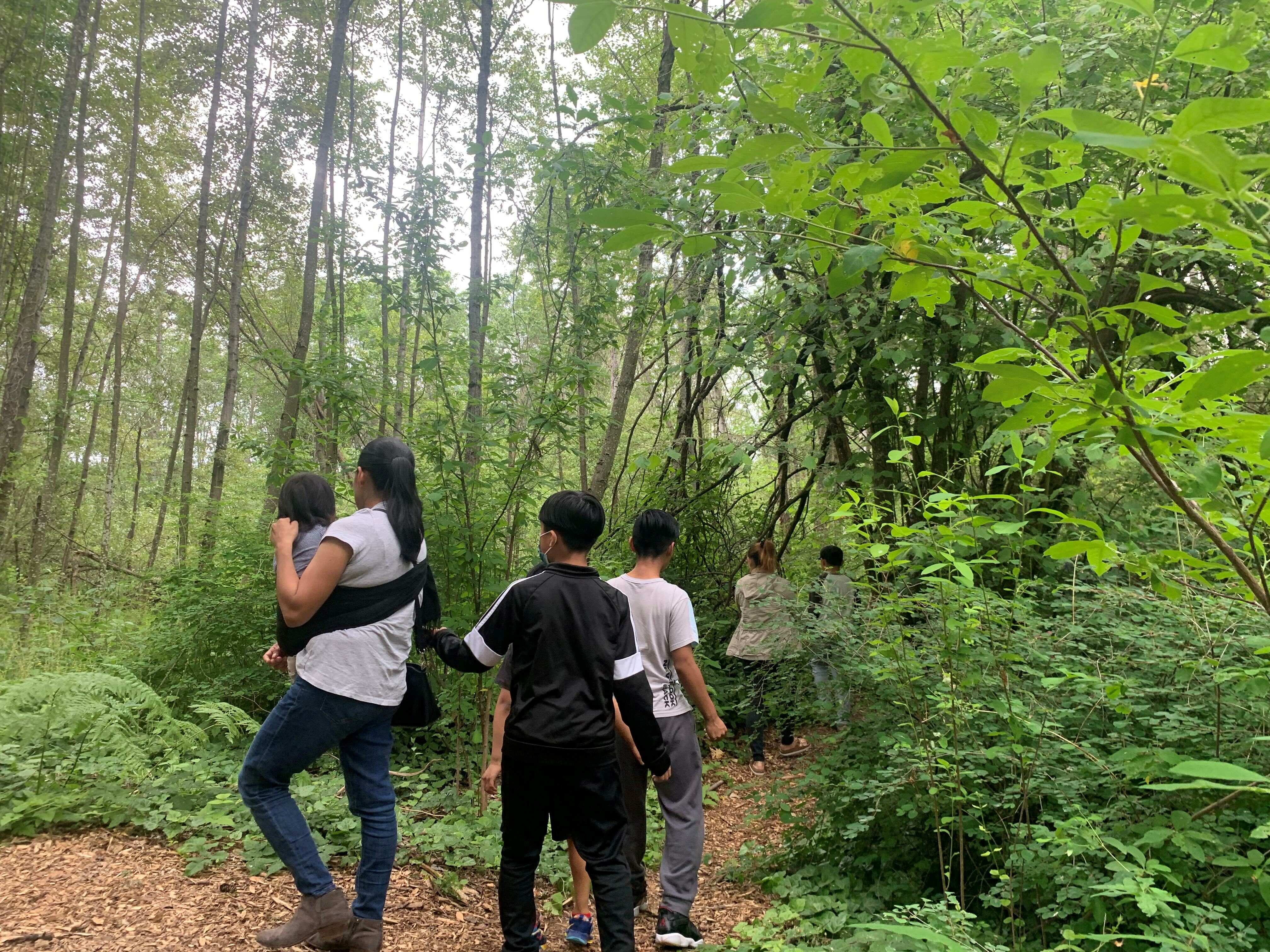This month we received the exciting news that IslandWood will receive its second grant from…
In October we shared the exciting news about IslandWood’s participation in a three-year National Science Foundation-funded project called COVID Connects Us.
The project, developed during the beginning of the COVID-19 pandemic, came as educators were reimagining a new normal for themselves and their students as a result of the huge shifts, and inequities, happening in education due to the pandemic. At such a pivotal time, an opportunity was seen to design and implement practices that could nurture a transformative culture shift in science classrooms, not just during the pandemic, but far into the future as well.
In partnership with professors from the University of Rochester and the University of Connecticut, Dr. Déana Scipio, Director of Higher Education and Graduate Programs, is leading IslandWood’s involvement in Covid Connects Us. Read our discussion with her below to learn more about this innovative research project.
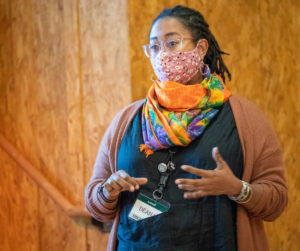
Dr. Déana Scipio, Director of Higher Education and Graduate Programs.
A three-year project sounds like a long, in-depth project! What are the goals of this work?
Indeed! It’s an ambitious project, with big goals.
The goals of the COVID Connects Us project are:
- Developing and understanding core justice-centered tools, practices, and routines that can create cultural shifts in all the places science is taught — like science and in the PNW woods here at IslandWood. Essentially, we want to understand the role that justice plays in science teaching to create learning environments that can be more welcoming to students who do not currently see themselves or the concerns of their communities represented in science learning environments.
- Researching the impact of focused support and effort on teachers’ professional identity development as practitioners of JuST (Justice-centered Science Teaching) practices. How do science educators develop to center justice in their teaching?
How will IslandWood be involved in Covid Connects Us?
We’ll be involved through our graduate program, Education for Environment and Community (EEC). The program, which we run in partnership with the University of Washington College of Education, is an immersive residency in justice-oriented environmental education. Graduate students, as part of their coursework, participate in a rigorous practicum program — teaching IslandWood’s School Overnight Program to 4th – 6th-grade students from the Puget Sound region.
IslandWood was identified as an ideal partner in this project because of the mentorship and practicum aspect of our graduate program. Throughout the year, graduate students take courses and teach the School Overnight Program on alternate weeks. Every grad is paired with a mentor for the year and during the weeks they are teaching, mentors support grads’ instruction in the School Overnight Program, providing many opportunities for grads to learn from their own teaching in weekly 1:1 meetings.
Our graduate students work with as many as 17 different schools over the course of the year, so they can teach similar material multiple times to many different students. This short, iterative feedback loop between theoretical (coursework) learning, real-world teaching (practicum) in the field, and direct one-on-one feedback from mentors makes us an ideal space to study how graduate students become JuST educators. Because we already have this model in place, we can build in developing our understanding of how graduate students develop JuST practices over their year in the program.
We will be paying attention to the trajectory of our students and their development process. How are they processing their learning and how might their practices and approaches change over the course of a year?
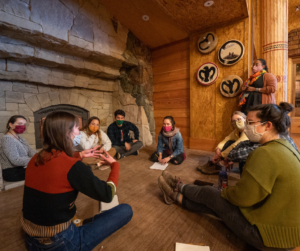
Students in IslandWood’s graduate program discuss during a group session led by Dr. Déana Scipio.
What does the project hope to do with the data it collects about educators and their learning process, including IslandWood’s graduate students?
Ultimately, the project seeks to provide a set of design principles to guide other educators as they revise science instruction and use methods that are justice-centered. We want to create a tool to help teachers understand how to use justice-centered ambitious science instruction (JuST) in their learning environments. We are interested in understanding what skills, practices, and guiding principles enable educators to view their teaching through a social justice lens? What are some of the learning trajectories? Ultimately, we want to deepen our understanding of how to support teachers’ professional development as practitioners of JuST instruction.
What is the timeline of the project?
In years one and two, we’ll be collecting and analyzing data from graduate student teaching and working with our grad students to revise, identify, and refine their JuST practices. We’ll focus on what works and spend time modifying elements of our curriculum and teaching practices.
Year three will be focused on disseminating work, questions, and lessons learned about the development of JuST practices that can be incorporated and expanded upon by all educators.
Will you be able to share some of your learnings as you and the grad students participate in this exciting project?
Yes! We hope to share as we go. I’m thrilled and honored that IslandWood is part of this work – we have an opportunity to learn more about our own program and to contribute that knowledge to the critical work happening in bringing justice-oriented work into the field of science education.
P.S. Want to learn more about Déana and her work? Check out the Ask Dr. Dé blog series here.
P.P.S. If you haven’t already, subscribe to our newsletter to stay in the know about blog posts, news, and events!

